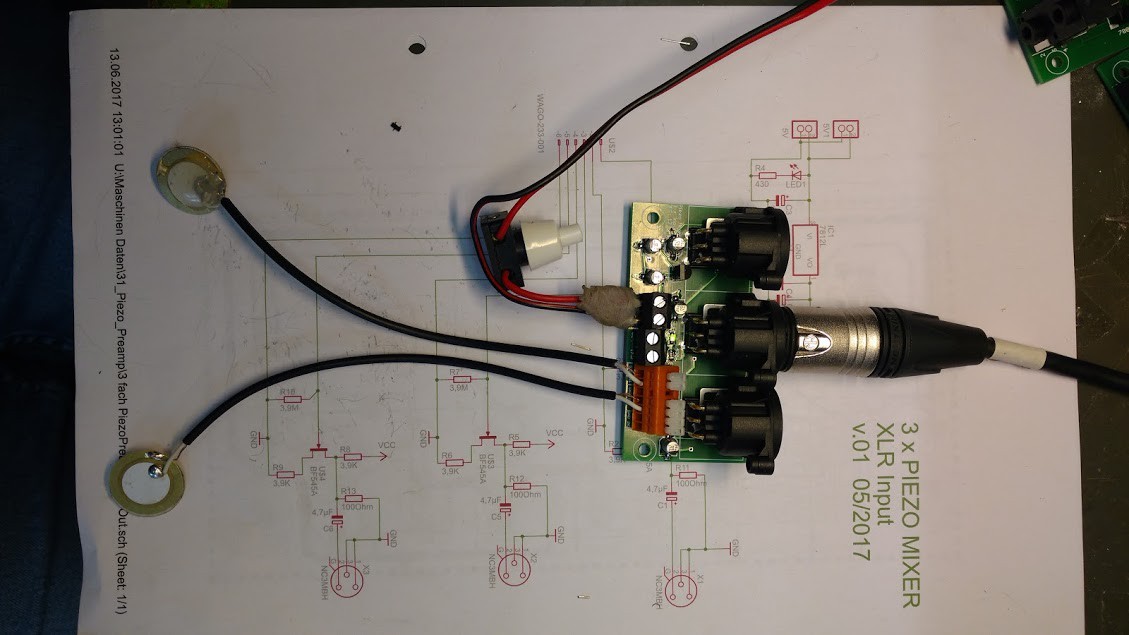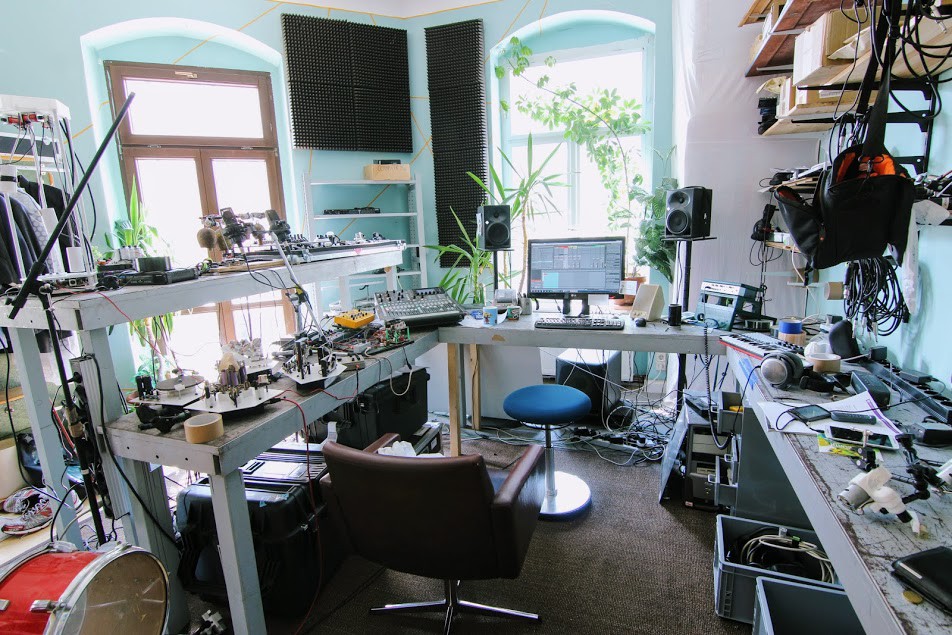There are different philosophies of how to approach the sound in music robotics. Some artists don’t use amplification at all and work only with the natural sound. This is somehow the major-league, because it involves a lot of knowledge about acoustic instrument design. I use amplification, to even out the different volumes of the many instruments, but also because I play electronic music and that has to be loud. When using direct microfones like SM58 or C414 it is easy to capture the main sound of a music robot. But on biggers stages this easily gets a feedback-disaster. So I am only using contact microphones. You can build them yourself, and they are pretty cheap. The issue here is, contact mics take only direct vibrations inside a body – you can not capture air pressure differences (like normal mics). For some instruments that doesn't work. All flutes, woodwinds etc. are hard or impossible to catch with a contact microphone. But hey, we are talking about techno here, and we wouldn't want pan-flutes there anyway!
The placement of a piezo mic is most important. Sometimes 1-2 millimeters make the difference.
Then there is the pre-amplifier. You can plug a piezo mic directly in any line or mic preamp. But as piezo mics have a very high resistance, the will create a high pass / low pass with any standard input, so the sound gets “phony” – no bass, and no highs. When you uses a High-Z piezo input a new sound world will open up. Everything is suddenly clear, balanced. I can only recommend that!
I use a digital mixer (the Behringer X32) to mix everything. Its not the worlds best, but the cheapest of its kind digital mixer. For my TRIPODS ONE Installation I have 10 Inputs, all from piezo mics. With the digital mixer I can get compression, EQing, Gate, etc to all of the inputs at once.


 Moritz Simon Geist
Moritz Simon Geist
Discussions
Become a Hackaday.io Member
Create an account to leave a comment. Already have an account? Log In.